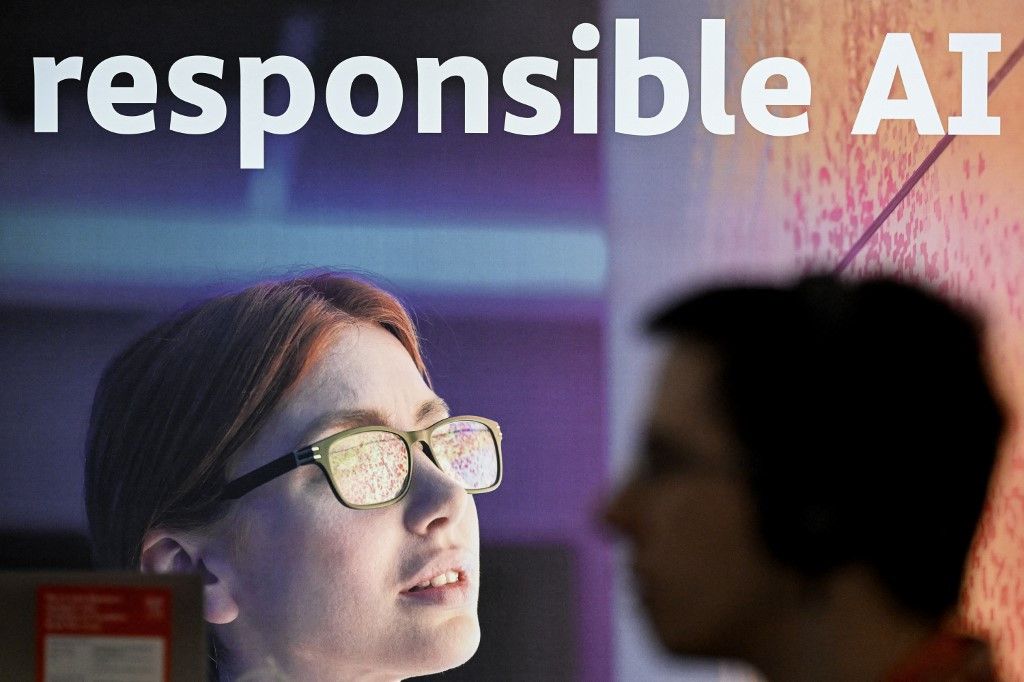A man walks past a banner with an artificial intelligence sign at the Frankfurt book fair on Oct. 16, 2024, on the first day of the world's biggest book fair in Frankfurt am Main, western Germany. (AFP/Kirill Kudryavtsev)
As AI adoption races ahead, the same tools driving personalization and efficiency are also unlocking new dangers, from biased credit scoring and data misuse to ever more cunning financial scams.
A rtificial intelligence has become one of the defining megatrends reshaping global finance, joining digital assets, cybersecurity and evolving customer expectations as forces transforming how the world banks, invests and safeguards value. For financial institutions, AI is now both a frontier of opportunity and a test of responsibility.
The AI market is projected to reach US$900 billion globally by 2026, nearly doubling in just four years. In banking and finance, the adoption of generative AI alone is projected to rise by around 75 percent by 2027 as institutions deploy it across risk management, customer engagement, product innovation and beyond.
This transformation has important implications for Indonesia as it seeks to further expand financial access and enhance the maturity of the national banking ecosystem.
We already see AI becoming embedded in daily financial life, from chatbots and digital
Continue Reading on Jakarta Post
This preview shows approximately 15% of the article. Read the full story on the publisher's website to support quality journalism.
